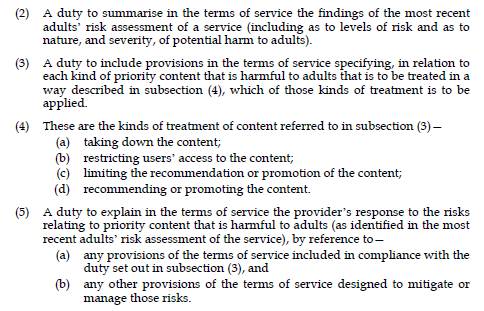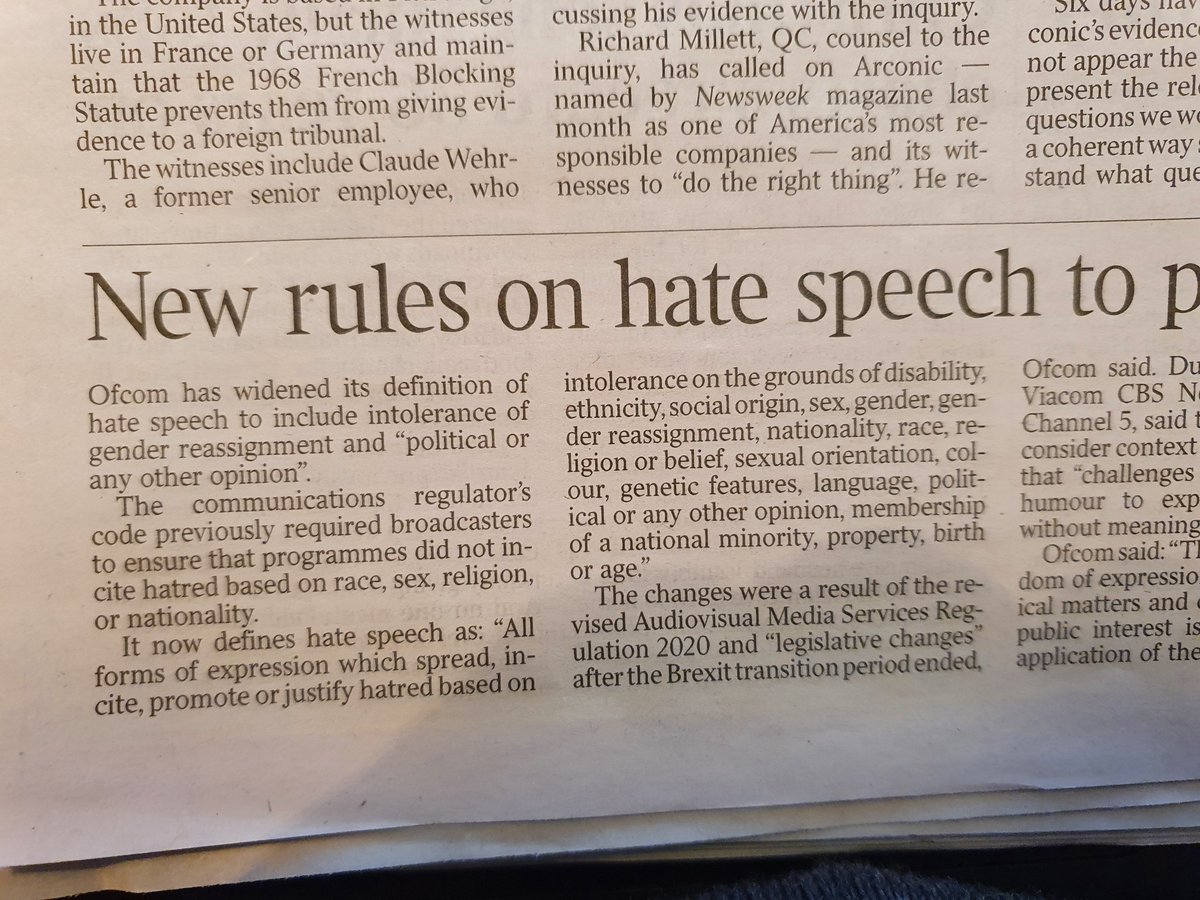
"This reduces the risk that platforms are incentivised to over-remove legal material ... because they are put under pressure to do so by campaign groups or individuals who claim that controversial content causes them psychological harm." 1/2
https://twitter.com/NadineDorries/status/1503662845837381632
She is talking about 'legal but harmful', but does she realise that applying the illegality safety duty to the proposed new 'harm-based offence' will have exactly that result? 2/2
As explained here. #OnlineSafetyBill cyberleagle.com/2021/11/licenc…
Lengthy thread on how this arises (as I understand the proposed legislation - other views welcome). #OnlineSafetyBill
Consider an example in which Anne Other posts her highly contested views on a hypothetical discussion forum, PQRnet. PQRnet has to consider whether it has reasonable grounds to believe that the content is illegal.
So:
1⃣ PQRnet must consider whether the post is likely to cause harm to a likely audience. Bear in mind that:
(a)Harm means psychological harm (amounting to at least serious distress).
(b)Context, including the characteristics of a likely audience, must be taken into account.
1⃣ PQRnet must consider whether the post is likely to cause harm to a likely audience. Bear in mind that:
(a)Harm means psychological harm (amounting to at least serious distress).
(b)Context, including the characteristics of a likely audience, must be taken into account.
(c)One person likely to see, hear, or otherwise encounter the post at the time it was sent counts as a likely audience.
(d)Arguably, there is no need to show that such a person actually, as opposed to hypothetically, forms part of the audience.
(d)Arguably, there is no need to show that such a person actually, as opposed to hypothetically, forms part of the audience.
(e)There is no requirement to show that anyone was actually harmed.
(f)There is no requirement that the reaction of the likely audience reaction be reasonable, only foreseeable.
(g)‘Likely’ should be understood as a real or substantial risk.
(f)There is no requirement that the reaction of the likely audience reaction be reasonable, only foreseeable.
(g)‘Likely’ should be understood as a real or substantial risk.
2⃣ PQRnet must consider whether it has reasonable grounds to believe that the post was sent without reasonable excuse. This must take into account whether the communication was, or was meant as, a contribution to a matter of public interest.
3⃣ PQRnet must consider whether it has reasonable grounds to believe that the post was intended to cause harm to a likely audience (in the same senses as above).
Let us assume that PQRnet decides that it does not have reasonable grounds to believe that the post is illegal.
But what if someone who asserts that they suffer serious distress from encountering Anne Other's views joins PQRnet and informs PQRnet that they are now part of the likely audience?
That would not alter the position for past posts, but what of future posts?
For future posts, does PQRnet now have reasonable grounds on which to believe likelihood of harm, intent and lack of reasonable excuse (having regard to whether the post was, or was meant as, a contribution to a matter of public interest)?
Bear in mind that if it does, the illegality safety duty obliges PQRnet to have systems and processes in place to remove such content, either proactively (for priority illegality) or reactively (for the rest) under pain of regulatory sanctions.
The Law Commission accepted the possibility of this ‘insertion into the audience’ tactic, but considered that other elements of the offence (the need to prove lack of reasonable excuse and intent to harm) would constitute sufficient protection from criminalisation.
Even if that is right, it does not address the combination with the illegality safety duty with its ‘reasonable grounds to believe’ threshold. That in any event requires PQRnet to be the judge of what is and is not a contribution to a matter of public interest.
Pressure by "individuals who claim that controversial content causes them psychological harm"are what the Secretary of State said that the ‘legal but harmful’ provisions would not enable. conservativehome.com/platform/2022/…
However, has she considered the effect of combining the proposed harm-based offence with the illegality safety duty? /end
All discussed much more fully here. cyberleagle.com/2021/11/licenc…
• • •
Missing some Tweet in this thread? You can try to
force a refresh







